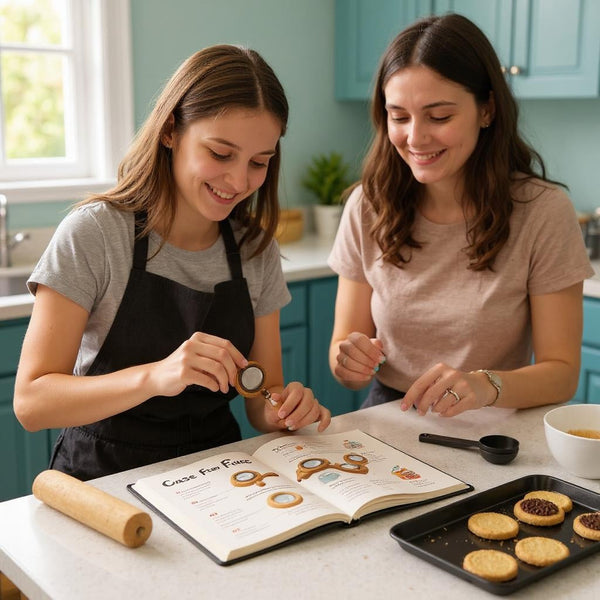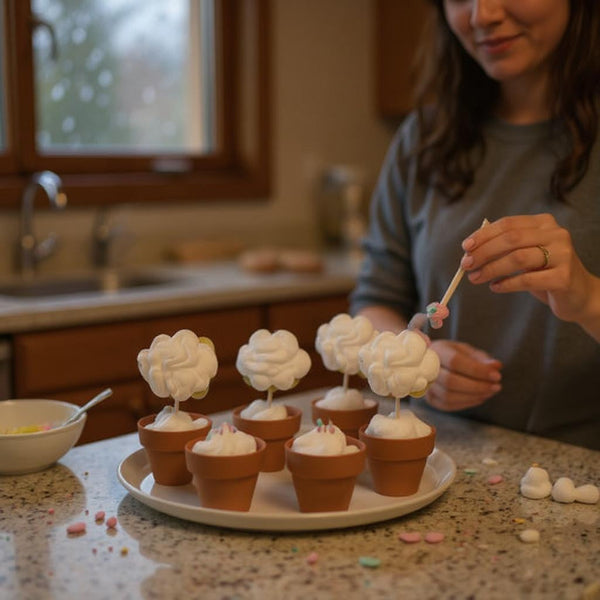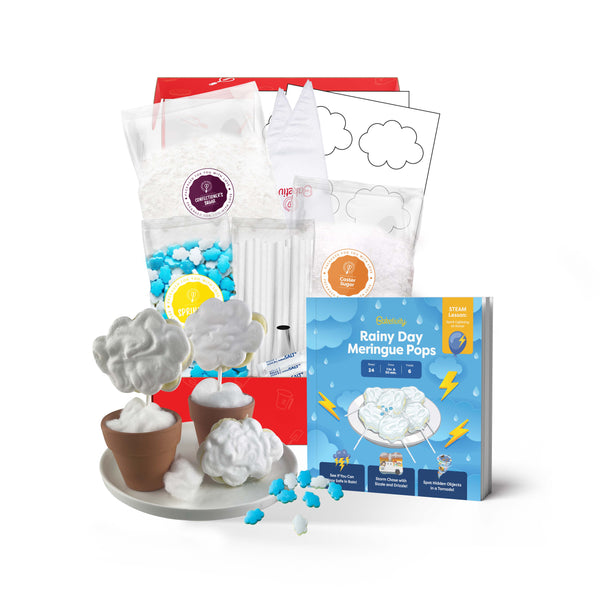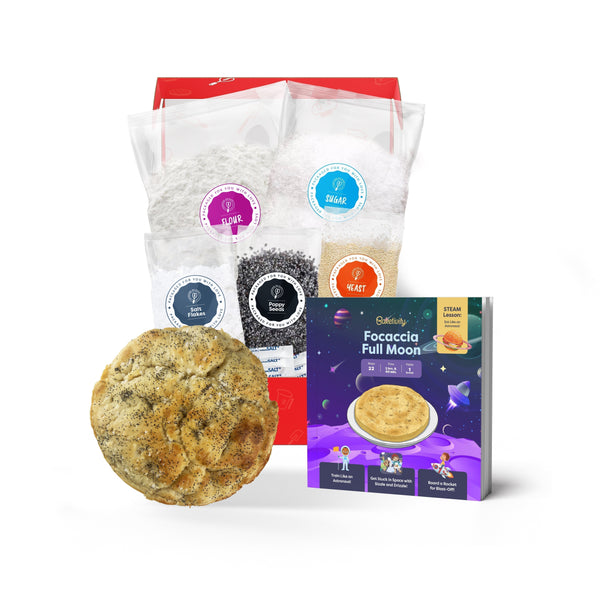Cooking is not just a valuable life skill; it can also be an excellent educational tool, especially when it comes to homeschooling. Integrating cooking into your homeschool curriculum can provide numerous benefits for your child's development. In this comprehensive guide, we will explore the importance of cooking in homeschooling, how to build a
cooking homeschool curriculum, essential cooking skills to teach, planning your cooking lessons, and evaluating progress. Let's get started!
Understanding the Importance of Cooking in Homeschooling
Cooking is more than just a means to prepare meals; it offers a wide range of educational benefits for homeschoolers. By incorporating cooking into your curriculum, you can enhance your child's learning experience in various subjects, including science, math, reading, and even social skills.
Furthermore, cooking provides a
hands-on approach to learning that can make complex concepts more tangible and easier to understand. For example, when following a recipe, children can practice measuring ingredients, which reinforces math skills such as fractions and conversions. They can also observe chemical reactions during cooking processes, gaining a practical understanding of scientific principles.
The Role of Cooking in Child Development
Engaging children in cooking activities allows them to
develop essential life skills such as following instructions, problem-solving, and creativity. Cooking also helps improve fine motor skills, hand-eye coordination, and sensory exploration. Moreover, it encourages teamwork and collaboration when working together to prepare a meal.
Additionally, cooking can be a great way to introduce children to new foods and encourage healthy eating habits. By involving them in the preparation of meals, children are more likely to try new ingredients and develop a broader palate. This hands-on experience can empower children to make healthier food choices and understand the importance of nutrition.
Integrating Cooking into the Homeschool Curriculum
When integrating cooking into your homeschool curriculum, it is crucial to choose recipes and activities that align with your child's interests and learning goals. By incorporating cooking into subjects like history or geography, you can make learning more interactive and engaging. For example, you can explore different cuisines from around the world or recreate historical recipes to better understand different cultures and time periods.
Furthermore, cooking can also teach valuable life skills such as time management, organization, and budgeting. Planning a meal, creating a shopping list, and staying within a budget can provide practical lessons that will benefit children as they grow older and become more independent. By incorporating cooking into your homeschooling routine, you are not only enriching your child's education but also preparing them for the real world ahead.
Building Your Cooking Homeschool Curriculum
Creating a cooking homeschool curriculum is an exciting process that allows you to tailor the lessons to your child's culinary skill level and interests. It provides a hands-on approach to learning that can be both educational and fun. By incorporating cooking into your homeschooling routine, you can teach your child valuable life skills that will last a lifetime.
One additional step to consider when building your cooking homeschool curriculum is to involve your child in the meal planning process. Encourage them to choose recipes they are interested in trying or dishes they enjoy eating. This not only increases their engagement and excitement about cooking but also helps them develop decision-making skills and a sense of autonomy in the kitchen.
Identifying Your Child's Culinary Skill Level
Start by assessing your child's existing culinary skills and knowledge. This will help you determine where to begin and what techniques and recipes to introduce based on their abilities. Remember that everyone learns at their own pace, so it's essential to provide a supportive and nurturing environment. As you observe your child in the kitchen, take note of their strengths and areas for improvement. This will guide you in creating a curriculum that challenges them while also building their confidence.
Setting Goals for Your Cooking Curriculum
Establish clear goals for your cooking curriculum. These goals can be skill-specific, such as mastering knife techniques or understanding the science behind baking, or broader goals like developing a love for healthy eating habits. Setting goals will help you structure your lessons effectively and track your child's progress over time. Consider involving your child in the goal-setting process to ensure they are motivated and invested in their culinary education.
Essential Cooking Skills to Teach
When building your cooking homeschool curriculum, it is essential to cover fundamental cooking skills that will benefit your child in the kitchen and beyond. Here are some key areas to focus on:
Basic Kitchen Safety and Hygiene
Teaching your child about kitchen safety rules, such as proper handwashing, handling sharp objects, and using appliances correctly, is crucial. Understanding
basic kitchen safety and hygiene practices will ensure their well-being and reduce the risk of accidents during cooking activities.
Additionally, it's important to emphasize the significance of maintaining a clean and organized workspace. Teaching your child to sanitize surfaces, store ingredients properly, and keep utensils clean will not only prevent cross-contamination but also instill good habits that they can carry into adulthood.
Fundamental Cooking Techniques
Introduce your child to essential cooking techniques, such as chopping, sautéing, and baking. Learning these techniques will provide them with a solid foundation to explore different recipes and experiment with flavors and textures.
Moreover, encouraging your child to practice knife skills and experiment with various cooking methods, such as grilling, roasting, and steaming, will broaden their culinary repertoire. This hands-on experience will boost their confidence in the kitchen and spark their creativity when preparing meals.
Understanding Ingredients and Nutrition
Teach your child about different ingredients and their nutritional value. Show them how to read food labels, identify healthy options, and make informed choices. This knowledge will empower them to create nutritious meals while developing a deeper understanding of the importance of balanced eating habits.
Furthermore, exploring the origins of ingredients, discussing sustainable food practices, and introducing concepts like seasonality and food preservation methods can deepen your child's appreciation for food and where it comes from. By fostering a connection between what they eat and how it impacts their health and the environment, you are nurturing a mindful approach to cooking and eating.
Planning Your Cooking Lessons
Planning your cooking lessons is essential to keep your homeschool curriculum organized and engaging. Here are some tips to consider:
Structuring Your Cooking Classes
Plan your cooking classes by breaking them down into manageable tasks. Begin with a brief introduction to the recipe, including the skills and techniques they will learn. Then,
guide your child through each step, allowing them to practice and master the necessary skills. Encourage them to ask questions and actively participate in the process.
Incorporating Theory and Practical Lessons
To create a well-rounded cooking curriculum, incorporate both theoretical and practical lessons. Introduce your child to the science behind cooking, such as the role of ingredients or the chemical reactions that occur during baking. Balance these theoretical concepts with hands-on activities to solidify their understanding and make learning enjoyable.
Evaluating Progress in Your Cooking Curriculum
Regularly assessing your child's progress is crucial to ensure they are benefiting from the cooking homeschool curriculum. Here are some ways to evaluate their development:
Assessing Your Child's Culinary Skills
Observe your child's cooking skills and techniques during the lessons. Assess their ability to follow instructions, apply safety measures, and accurately measure ingredients. Provide constructive feedback to help them improve and celebrate their achievements along the way.
Providing Constructive Feedback
Offering constructive feedback is vital to your child's growth and development. Focus on highlighting their strengths and areas for improvement. Encourage open communication and foster a positive learning environment where mistakes are seen as opportunities to learn and grow.
Cooking can be a wonderful addition to your homeschool curriculum, offering numerous educational benefits and creating lifelong memories. By understanding the importance of cooking in homeschooling, building a well-structured curriculum, teaching essential cooking skills, planning engaging lessons, and evaluating progress, you can provide your child with a comprehensive cooking education. So, put on your aprons, grab some cooking utensils, and embark on this exciting culinary journey with your homeschooler!
Start Your Family Baking Adventure with Baketivity!
Ready to turn your kitchen into a fun and educational bakery? Join the Baketivity Baking Club and embark on a delightful journey of family bonding, creativity, and learning. Our baking kits, infused with quality ingredients and the joy of discovery, are designed to provide you with everything you need to create lasting memories. Embrace the art of baking and nurture your child's culinary talents today.
Join the Baking Club and let's bake up some fun!




